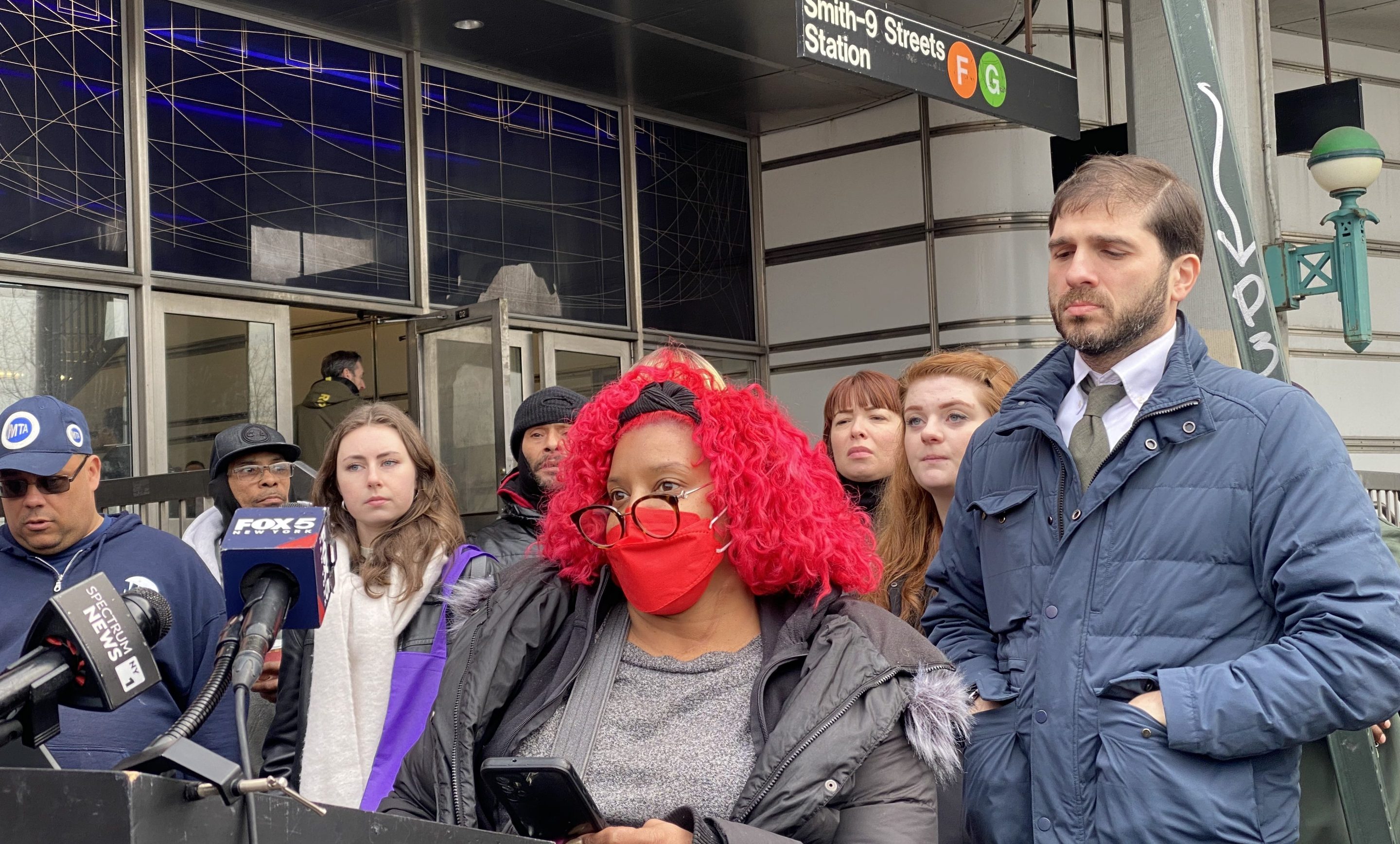Lawsuits to block the MTA's congestion pricing program endanger New York's plans to make the city's subway system accessible to people with disabilities while snarling the streets many of them rely on to get places, advocates and politicians said Friday.
Legal challenges from New Jersey Gov. Phil Murphy, the United Federation of Teachers and others have forced the MTA to halt sorely needed fixes to the city's aging transit system — including officials' plans to bring elevators and other accessibility improvement to dozens of subway stations.
Only a little over a quarter of the city's 472 subway stations currently have full accessibility — MTA officials recently settled years-old Americans with Disabilities Act litigation by committing to pursue accessibility through the authority's capital programs, funded in large part by congestion tolls.
“That’s not gonna happen if the money’s not there. The money’s not gonna be there if congestion pricing is not implemented,” Brooklyn state Sen. Andrew Gounardes said during a press conference at Smith-Ninth Streets station, which at nearly 88 feet tall is the highest stop in the system but lacks any elevators.
“It’s time for an end with these frivolous lawsuits," Gounardes said, flanked by his counterpart in the Assembly Jo Anne Simon and advocates.
The elevated station is the mid-way point of a five-stop gap of accessible stations on the F and G lines between downtown Brooklyn and Park Slope.
Opponents of the $15 toll to enter Manhattan below 60th Street have argued that the tax hurts people with disabilities who rely on a private automobile to get around — but many more disabled, working class New Yorkers travel by subway, bus or paratransit.
Disability advocates said they deserve the same access to the system as able-bodied commuters.
"The more money they have for projects, the more stations I will be able to use," said Elizabeth Valdez of Brooklyn Center for Independence of the Disabled, who uses a wheelchair.
People who can’t use the subway system rely on surface transportation like buses and Access-A-Ride, the advocates noted. The congestion charge promises to unclog traffic and speed up those commutes — including for motorists.
“The traffic easing that will come of congestion pricing means that people who rely on paratransit and wheelchair-accessible vehicles will actually be able to get where they need to go," said Christopher Schuyler, an attorney with the Disability Justice program at New York Lawyers for Public Interest.
“Of all people affected by congestion pricing, people with disabilities are most affected and it’s most important for congestion pricing to pass."
Congestion pricing will fund critical accessibility improvements—like elevators at subway stations for riders who use wheelchairs, seniors with limited mobility, parents pushing strollers, and millions of others.
— Senator Andrew Gounardes (@Sen_Gounardes) February 23, 2024
Let's make the people's transportation system work for all people. pic.twitter.com/RyLqIZbMAb
The MTA earmarked a historic $6 billion of its current $51.5 billion five-year capital plan for accessibility improvements, including plans to make 70 stations newly ADA accessible and modernize an additional 78 subway elevators.
Elevators used to be a fairly minor part of the agency’s capital budget, but transit honchos two years ago agreed to a legal settlement with advocates to make 95 percent of stations accessible by 2055. The agreement marks an important milestone more than a quarter-century after the Americans with Disabilities Act required full access in 1990.
But now, the barrage of anti-congestion pricing lawsuits — including by the Garden State, Staten Island Borough President Vito Fosella, and UFT President Michael Mulgrew — threaten the funding streams for much-needed work, as well as signal upgrades for more reliable service, and work to extend the Second Avenue Subway to Harlem, according to MTA officials.
“They’re spending more in this capital plan [on accessibility] than all other previous capital plans combined — that’s huge,” said Jessica Murray of the Elevator Action Group. “Now they’re starting to finally get the momentum, there are dozens of station projects underway — and what’s happening, we have to pause?”
In line with the 2019 congestion pricing law, the Traffic Mobility Review Board, which recommended pricing and discounts for the toll, did propose exemptions for cars with government-issue disability license plates.
But MTA officials hinted they plan to find a better way to accommodate people with disabilities, after experts warned that most don't drive into downtown Manhattan and that the license plates are too easy to get, which could open up a massive loophole for the charge.
"Most people with disabilities aren't driving in," Brooklyn Center for the Independence of the Disabled Executive Director Joe Rappaport recently told Streetsblog.






